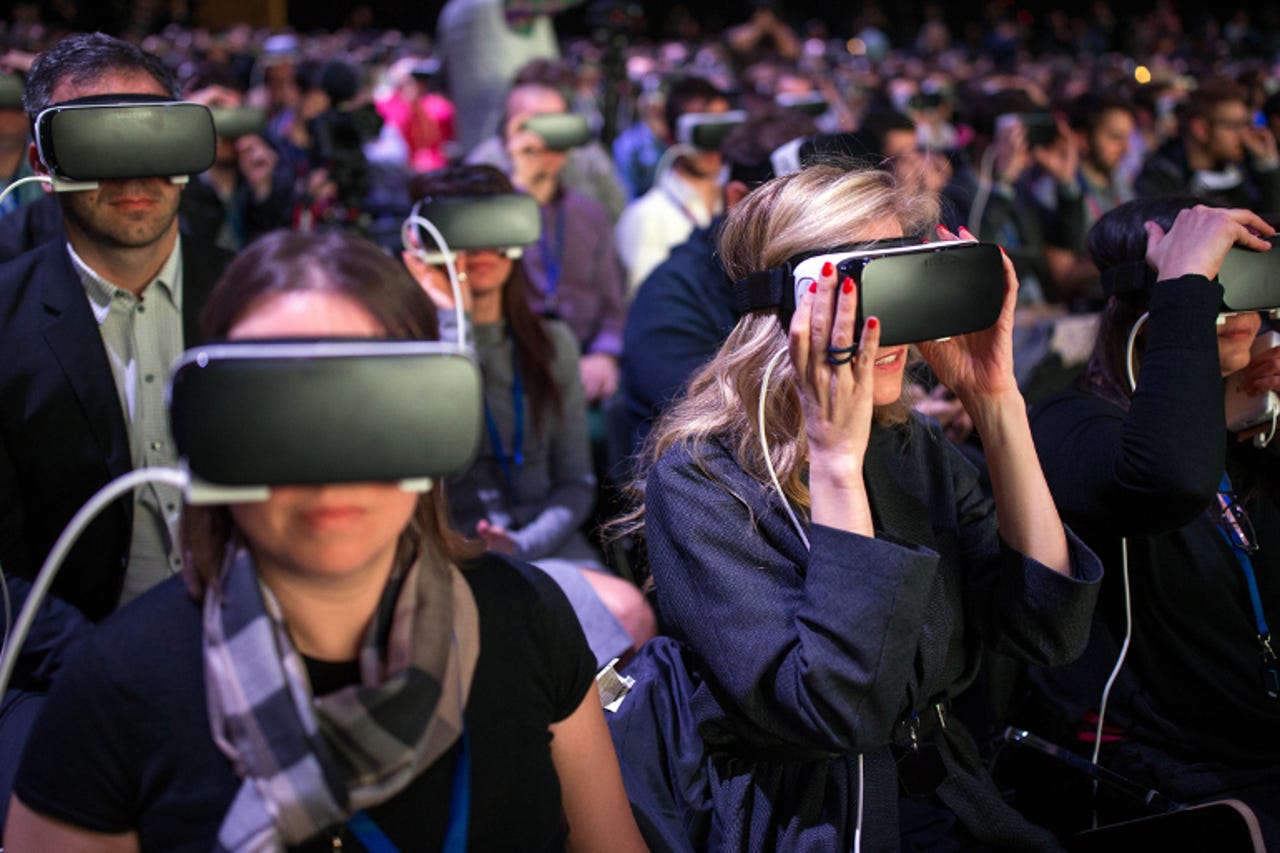VR is the next big thing, whether you can see it or not


How social is virtual reality?
It's probably a decade or so since I first tried out a virtual reality headset. It was a pretty unforgettable experience: like getting drunk, putting on an antique brass diving helmet, climbing onto a spinning merry-go-round and trying to play a Commodore 64 game.
But a lot less fun.
VR isn't like that anymore: the latest headsets are light(er), the leap in processing power means the images are crisp and there's little vertigo. After many, many false dawns it's finally a technology that is almost ready for the mass market. Sure, gaming and (adult) entertainment will lead the way, as they usually do, but there are going to be plenty of other uses too.
Give it another 10 years and that weekly catch-up with the boss (or your mum) won't be on the phone it will be in VR.
Still, the technology isn't without it's controversies. Last week an inadvertently hilarious/terrifying image of Mark Zuckerberg striding past rows of oblivious journalists strapped into their VR headsets launched a thousand memes about our future VR overlord, which quite overshadowed what he was actually at MWC to say.
Zuckerberg's argument: that far from being an isolating experience and the harbinger of the end of human civilisation as some have feared, VR is actually a social experience.
Going back 10 years we could share text online he said, then photos and now video, and "pretty soon we are going to live in a world where everyone has the power to share and experience whole scenes as if you there, right there in person," he said.
"VR is going to be the most social platform," he said, adding that when his daughter takes her first steps he wants to be able to record it in a 360 VR video. Facebook is assembling a team to work on social VR.
Most new technologies are accused of making us less sociable (all those people on your train every morning buried in their smartphones) but that's often unfair (those people on the train might be being very social - texting, tweeting, Facebooking or chatting - but just not with you).
VR will come in for exactly the same kind of criticism so it's interesting that Zuckerberg is trying to get out in front of it, if not entirely succesfully. Yes VR may be social, but social on who's term?
What makes VR different - and scary - is the immersive nature: you can't glance away from a headset in the way you can from a smartphone: it's an all-or-nothing deal which is exactly what made that photo of Zuckerberg and the sightless hacks so powerful. Perhaps in the world of VR the headset-less man is king.
VR has been a joke technology for so long that we haven't really thought through the implications of it. Now it is really happening we have to start thinking about the right and wrong ways to use it, and what it means for consumers, businesses and society. But I think Zuckerberg is right - VR is the next big platform: now we have to decide just what that means.
ZDNet's Monday Morning Opener is our opening salvo for the week in tech. As a global site, this editorial publishes on Monday at 8am AEST in Sydney, Australia, which is 6pm Eastern Time on Sunday in the US. It is written by a member of ZDNet's global editorial board, which is comprised of our lead editors across Asia, Australia, Europe, and the US.
Previously on the Monday Morning Opener:
- For simplicity and security, Apple needs to draw a line now to prevent further ones
- Will Galaxy S7 keep Samsung in pole position?
- A call for more cloud computing transparency
- Microsoft and mobile: The headache that won't go away
- If a smartphone vendor acquiesces to anti-encryption laws, don't use them
- Why it's time to give Twitter back to the community
- Business, tech leaders' challenge : Finding innovation that matters
- Amazon's 2016: Five key cloud, e-commerce questions
- Tech predictions 2016: 4 business trends to watch
- The 5 trends that rocked business tech in 2015
- The state of enterprise software: 5 lessons